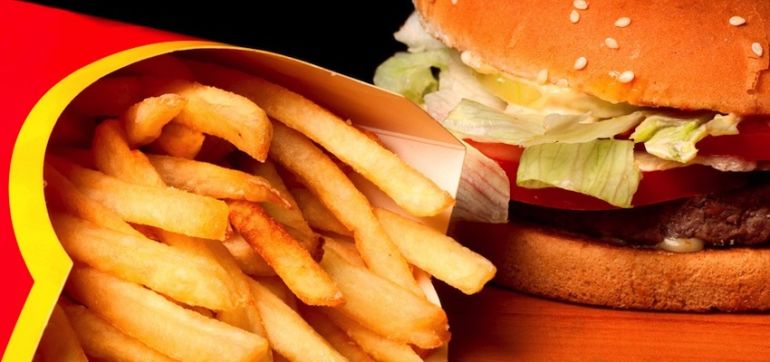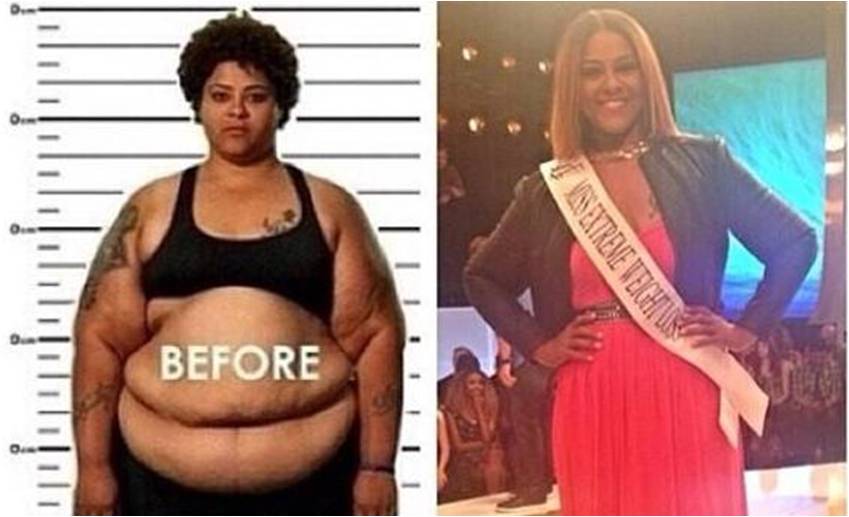Information On Vegan Weight Loss
Research shows that, on the whole, vegetarians are at a lower risk for obesity than meat-eaters or omnivores. This of course doesn't mean that vegetarians never have weight problems at all, but their rate of risk is relatively smaller. For a vegetarian weight loss diet to be successful, it still has to adhere to the basic principles of a healthy weight loss plan.
Vegetarian weight loss or vegan weight loss has many health benefits but also a few health pitfalls. Often people, in the understanding that they are not eating protein (meat) forget that even certain vegetables can be fattening. The ideal vegan weight loss plan follows the vegan food pyramid.
Vegan Food Pyramid: the vegan food pyramid is built on five food families. In descending order of how much portion each should be given in the diet of a vegan aiming for weight loss, these foods are;
1. Grains
2. Vegetables
3. Fruits
4. Dairy/Milk
5. Dry Beans, Nuts, Seeds, Eggs & Meat Substitutes
This diet gives fat 30% of the composition of your diet. These foods should be the focus of your weight loss program. The fast food brands of vegetarian food are actually not as healthy as they may appear. A general guideline you should follow when taking up a vegetarian weight loss diet plan is;
Choose a variety of foods, including whole grains, vegetables, fruits, legumes, nuts, seeds and, if eaten, dairy products and eggs. This will ensure you have a healthy vegetarian diet and enable you to lose weight as fast as naturally possible. Even if you're not on a protein diet, you can gain weight by eating the wrong kind of non-meat foods that are high in calories. Choose whole, unrefined foods often and minimize intake of highly sweetened, fatty, and heavily refined foods. High-sugar, high-fat vegetarian foods spell weight-gain, not weight-loss. If you're eating animal foods such as dairy products and eggs, choose lower-fat versions of these foods. Cheeses and other high-fat dairy foods and eggs should be limited in the diet because they contain saturated fat and because their frequent use displaces plant foods in some vegetarian diets. A healthy vegan weight loss diet should include a regular source of vitamin B-12 in the diet along with a source of vitamin D, especially if sun exposure is limited. If following a low calorie vegetarian weight loss diet, consider taking a good quality multi-vitamin and mineral supplement. Weight loss diets which contain low levels of calories may not provide all your required nutrition. Taking a supplement will ensure your body doesn't suffer from any dysfunctions or health damage. Consult a registered dietitian or physician BEFORE embarking on a vegetarian weight loss diet, especially during periods of growth, breast-feeding, pregnancy, or recovery from illness.
The final thing to remember is that healthy weight loss which can be sustained over the long term is only possible when you incorporate a healthy exercise regime into your weight loss program. A healthy 30 minute exercise routine will greatly aid your weight loss, provide your body with an excellent way to tone itself and give you a plan B just in case you splurge on the diet.
Vegetarian weight loss or vegan weight loss has many health benefits but also a few health pitfalls. Often people, in the understanding that they are not eating protein (meat) forget that even certain vegetables can be fattening. The ideal vegan weight loss plan follows the vegan food pyramid.
Vegan Food Pyramid: the vegan food pyramid is built on five food families. In descending order of how much portion each should be given in the diet of a vegan aiming for weight loss, these foods are;
1. Grains
2. Vegetables
3. Fruits
4. Dairy/Milk
5. Dry Beans, Nuts, Seeds, Eggs & Meat Substitutes
This diet gives fat 30% of the composition of your diet. These foods should be the focus of your weight loss program. The fast food brands of vegetarian food are actually not as healthy as they may appear. A general guideline you should follow when taking up a vegetarian weight loss diet plan is;
The final thing to remember is that healthy weight loss which can be sustained over the long term is only possible when you incorporate a healthy exercise regime into your weight loss program. A healthy 30 minute exercise routine will greatly aid your weight loss, provide your body with an excellent way to tone itself and give you a plan B just in case you splurge on the diet.
Related Articles
-
Can a Calorie Restrictive Diet Ruin My Metabolism?
A writer asks, “I’ve heard that my metabolic rate scree
-
Whole Foods vs. Antioxidant Supplements for Optimal Health
Hundreds of studies done over the last few decades have shown the b
-
5 Vitamins That Help You Lose Weight
Vitamins are essential nutrients that the body should be supplied with
-
The Perfect Weight-Loss Romance: Diet Meets Exercise
So youre fed up with the banana diet, the spinach soup diet, o
-
Centered With Stomach Weight Loss
By reading this particular article, I can only presume that you have t
-
Dieting 101 Choosing The Right Diet Foods
Diet fads come and go but the Food Guide Pyramid seems to continue to
- DON'T MISS
- To Be Thin, Think Thin
- Tips for Successfully Getting Rid of Fat
- Fire Up Your Fat Burning Machine With These 3 Easy Tips
- Can Specific Proteins and Carbs Keep Weight Off?
- Fat Loss Fips For The More Mature Person
- How to Lose Weight With PCOS or PCOD
- How To Get Your Body Naturally Burning Fat
- Your Health and Your Weight
- 18 Tips To Lose Weight Naturally & Without Depriving Yourself
- Weight loss: Set yourself up for success




